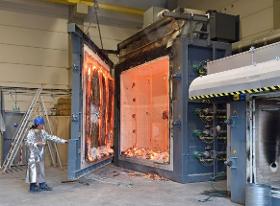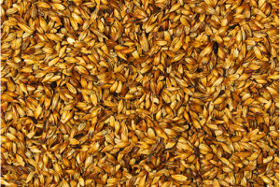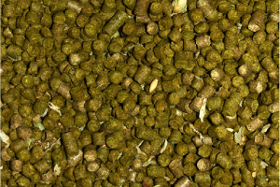- europages
- >
- COMPANIES - SUPPLIERS - SERVICE PROVIDERS
- >
- ore extraction
Results for
Ore extraction - Import export

BTF
Belgium
BTF designs and builds ovens for performance of fire resistance testing according several standards. We have experience in the construction of vertical, horizontal and combi ovens which are built for fire resistance trials –under controlled pressure and temperature. The furnaces are equipped with all the instruments needed for the monitoring, the acquisition and the processing of data. We continuously develop our own software using Siemens material for the automatic monitoring of the ovens during tests on the basis of a programmed curve and with data measured by the various sensors and probes (temperature, pressure, oxygen, radiation, deflection,…) The ovens can be flexible and equipped with a loadbearing system, an outdoor chimney with an extraction or treatment of flue gas, walkways, camera, deflection measurement system, etc. We also manufacture frames, removable walls and caps to modulate space in ovens according to tested samples. We move, adapt and renovate existing installation.
Request for a quote
CBS CUSTOMIZED BREWING SOLUTIONS
Belgium
CLOUDIX WB CLOUDING AGENT is an emulsion of coprah extract in water. All the components of the mixture are food grade 100% natural and they have not been in contact with any solvent. BENEFIT Adjusting of turbidity of beer, cider, alcoholic beverage, etc. This product does not impart odour or taste to the beverage. DOSAGE 1-2 ml/liter of beer. FOOD GRADE This product complies with FAO/WHO JECFA and FCC recommended specifications for food grade ingredients. INGREDIENTS Food grade vegetal extract (coprah) (100% natural no use of solvents or additives), water, 20% v/v ethanol, 1% vegetal gum. LABELING Vegetal extracts or natural aroma compounds or spices or beer aromatized with spices (Benelux AR 31 mars 93 bière ART. 4 § 2) . STABILITY At least one year under cool storage and exclusion of light and oxygen. AVAILABILITY Drums of 10, 25 kg (other packaging on demand)
Request for a quote
CBS CUSTOMIZED BREWING SOLUTIONS
Belgium
TANNOX-BREW is an atomized granulate powder of a high purified high molecular weight gallotannin. Gallotanins or tannic acid are extracted from gallnuts. Tannic acid inhibits malt lipoxygenase activity by 50%, reduces metals by its reducing power, removes metals by its chelating power and blocks radicals forming reactions. Tannic acid reacts very selectively with acid proteins containing SH-groups. Only these sensitive proteins are removed. TANNOX-BREW gives a real improvement on lauter-tun or mash-filter filtration rates and improves beer shelf life as far as clarity, taste and flavour are concerned. PROPERTIES PHYSICAL description: appearance: odour: taste: density: high purified high molecular weight gallotannin light yellow atomized granumate powder weak tea-like flavour neutral to light astringent dry 0.35 – 0.45 g/cm 3 CHEMICAL content: moisture: gallic acid: ash: solubility:pH: heavy metals: Arsenic: Lead: min. 96% tannic acid on dry max. 7% max. 1% max. 0.075% clear in...
Request for a quote
DE SMET ENGINEERS & CONTRACTORS
Belgium
De Smet Engineers & Contractors has been involved in all steps of the production of vegetable oils from oilseeds crushing for the construction of Edible Oils Plants; in this article you will find a more detailed understanding about the process of vegetable oil extraction: First step: Preparation of the oil containing material prior to solvent extraction Cleaning and Drying The plant feedstock must be cleaned so that foreign matters are removed. This applies particularly to sand/silicate and iron which may damage the preparation plant equipment. For some seeds or for some processes the incoming material moisture must be controlled and adjusted for better efficiency of subsequent operations. Mechanical preparation Most of raw materials needs to broken to reduce the particle size to ensure proper cooking and flaking. They are then heated in cooking / conditioning equipment and their moisture further controlled in addition to be softened before the next mechanical operations. After cooking, heated grits are flaked so that the oil cells are broken and the oil more readily available for further solvent extraction or mechanical pressing. Pressing Oilseeds containing above 20 to 25% (rapeseed, sunflower seeds, cottonseeds...) are generally pressed mechanically in order to extract most or part of the oil available in the feedstock. This operation is done through full pressing for maximum oil recovery leaving up to 5 to 10% in the final cake which is marketed as such or through a low pressure pre-pressing operation producing a cake with higher residual oil content which is then recovered in the solvent extraction plant. Dehulling Oil extraction plants produce a solid finished product in addition to the extracted oil; this product (cake or meal) is normally used as an important component for animal feed recipes. Depending on the meal destination, its protein content often needs to be increased and its fibre content minimized. Such characteristics are generally achieved through decortication or dehulling operations that separate the outer part of the feedstock before extracting the oil. Second step: Solvent extraction of the material suitably prepared Extraction In the solvent extractor, solids (Flakes from the flaking machines or cakes from the pre-presses) are conveyed through the equipment while a mixture of hexane and oil (miscella) is sprayed counter-current. The extractor produces therefore deoiled solids containing solvent and miscella. Desolventization Deoiled solids coming out of the extractor are conveyed to a dedicated equipment that completely removes the remaining solvent while preserving the meal quality: the desolventizer. This apparatus is usually combined with additional sections for drying and cooling the meal to the required storage and market parameters. Miscella distillation Solvent contained in the miscella is completely removed under vacuum and optimum temperature for preserving oil quality. The solvent from the distillation as well as the one removed at meal desolventization stage are then recycled to the extractor. Solvent recovery Since the air entering the process together with material fed to the extractor is laden with solvent when it is removed from the plant it first pass through a specially designed absorption column to limit emission to an acceptable level. Meal treatment The extracted meal is often subject for further treatment, including grinding to obtain the required granulometry or pelletizing to reduce its volume during transport.
Request for a quoteDo you sell or make similar products?
Sign up to europages and have your products listed
Results for
Ore extraction - Import exportNumber of results
4 ProductsCompany type
Category